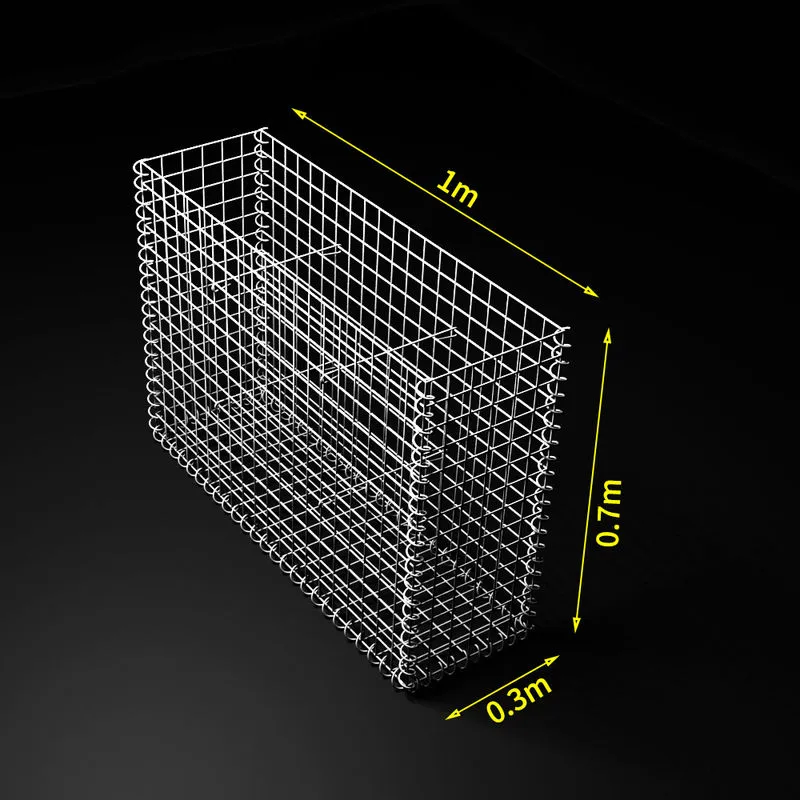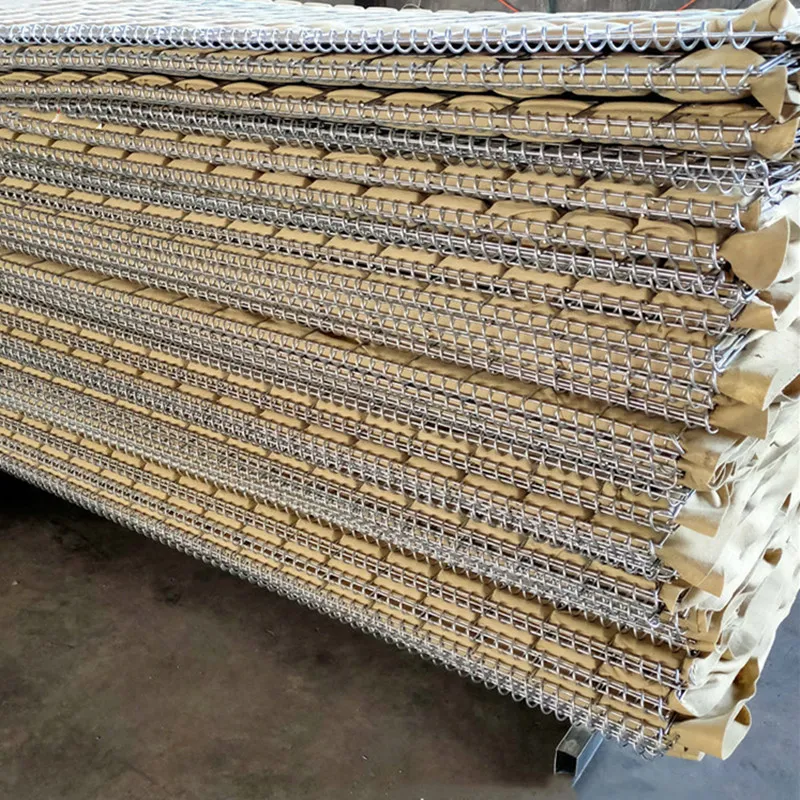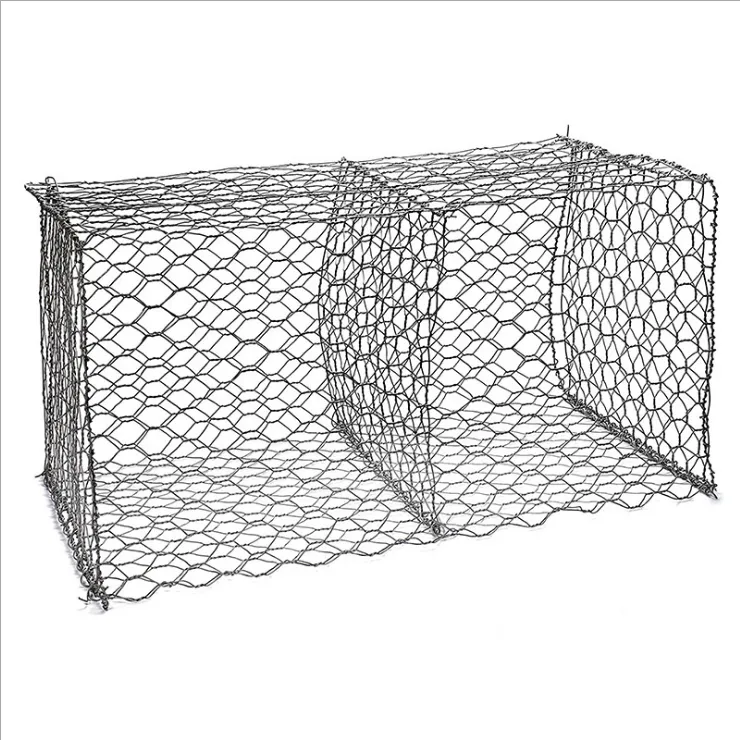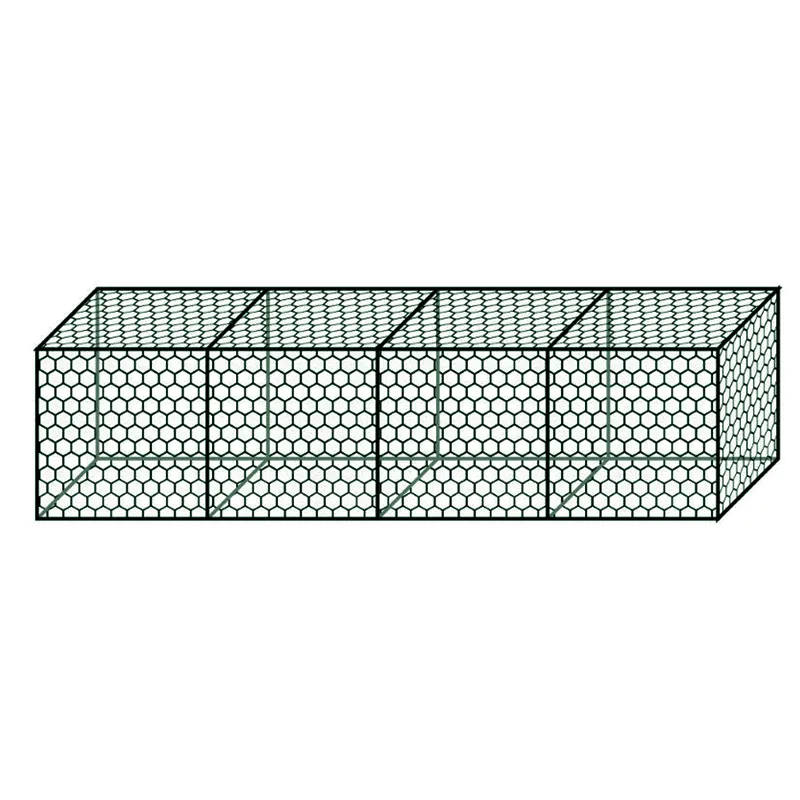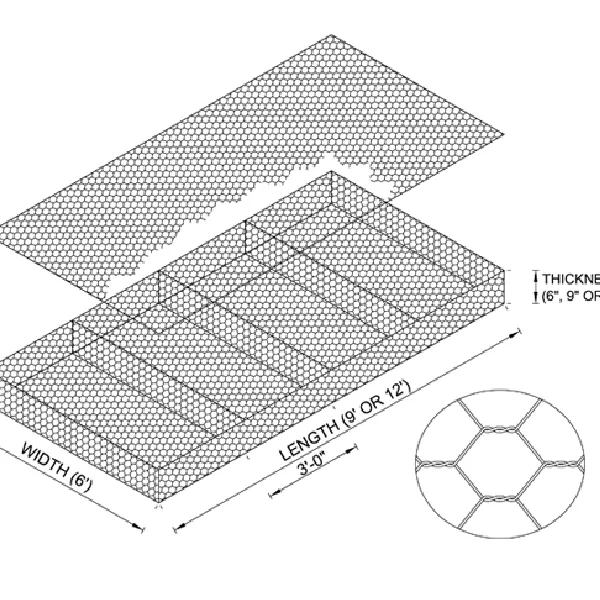Gabion Box Sizes
Gabion boxes come in a variety of sizes to suit different applications, from small residential landscaping projects to large-scale civil engineering works. The most common gabion box sizes typically range in width, height, and length, allowing for flexibility in construction and design.
Standard gabion box dimensions are usually 1 meter in width, 1 meter in height, and 3 meters in length. However, sizes can be customized based on project requirements. For instance, smaller gabion boxes used for decorative or landscaping purposes may be as small as 0.5 meters in height and length, while larger boxes for structural applications, such as retaining walls or riverbank stabilization, may exceed 2 meters in height and length.
In addition to the standard rectangular boxes, gabion boxes are also available in cylindrical shapes or other custom forms, depending on specific design needs. The wire mesh used for these boxes is typically made from high-tensile steel, and the openings in the mesh can vary, with typical sizes being 5x10 cm or 10x10 cm.
When selecting the right gabion box size, factors such as the project scale, material to be filled, and environmental conditions must be considered to ensure optimal performance and durability.
What Is A Gabion Box
A gabion box is a rectangular container made from strong wire mesh, typically filled with rocks, stones, or other materials. These boxes are primarily used in civil engineering, landscaping, and environmental protection projects, where they serve as structural elements like retaining walls, erosion control barriers, and noise reduction walls. The wire mesh of a gabion box is usually made from high-tensile steel, and it is often coated with zinc (galvanized) or PVC to enhance its resistance to corrosion and increase its durability, especially in outdoor and harsh weather conditions.
Gabion boxes are highly flexible and adaptable, as they can be stacked or arranged in various configurations to create stable and functional structures. The mesh design allows water to drain freely through the stones inside, preventing water pressure buildup and reducing the risk of erosion. Gabion boxes are environmentally friendly, promoting vegetation growth over time and blending well with natural landscapes.
Easy to install and low-maintenance, gabion boxes provide a cost-effective solution for building strong, durable, and aesthetically pleasing structures that are ideal for a wide range of applications, including flood control, road stabilization, and landscaping projects.


